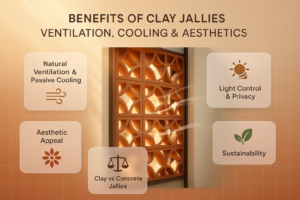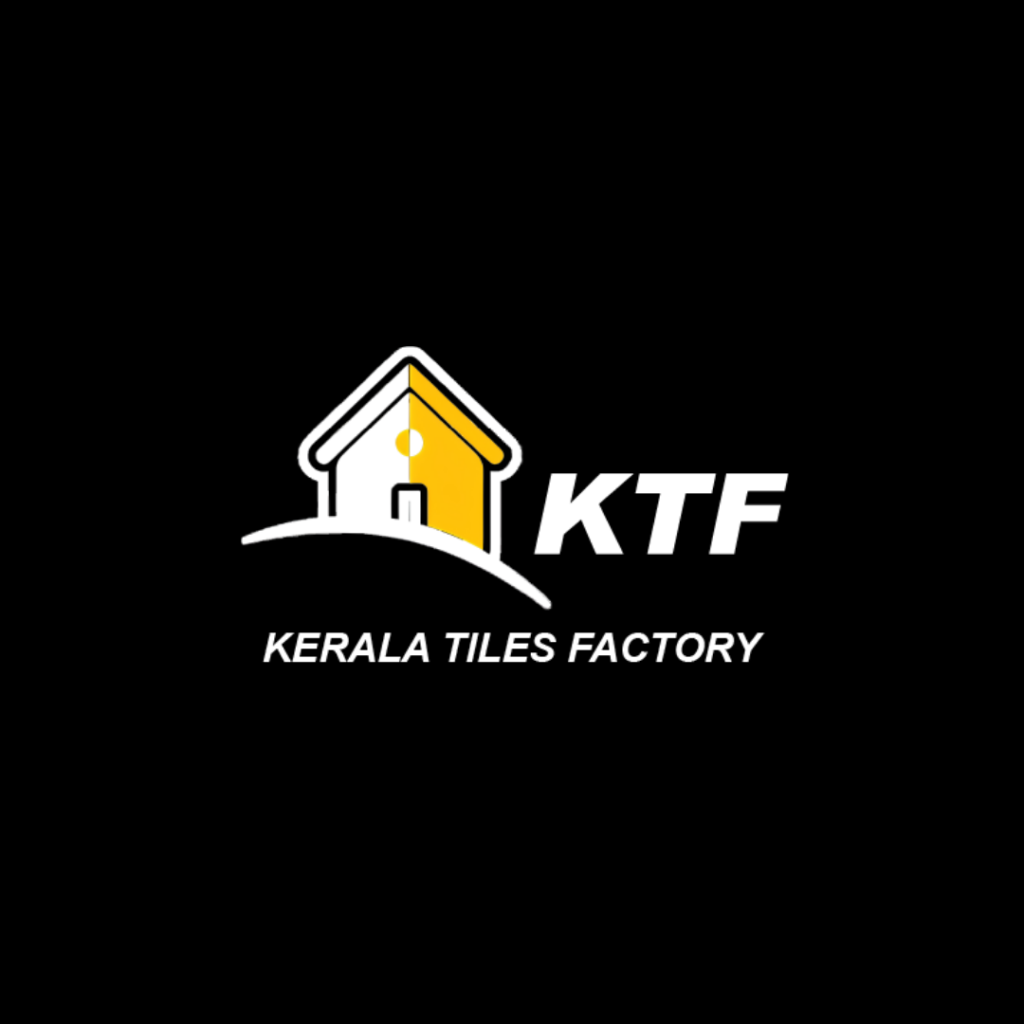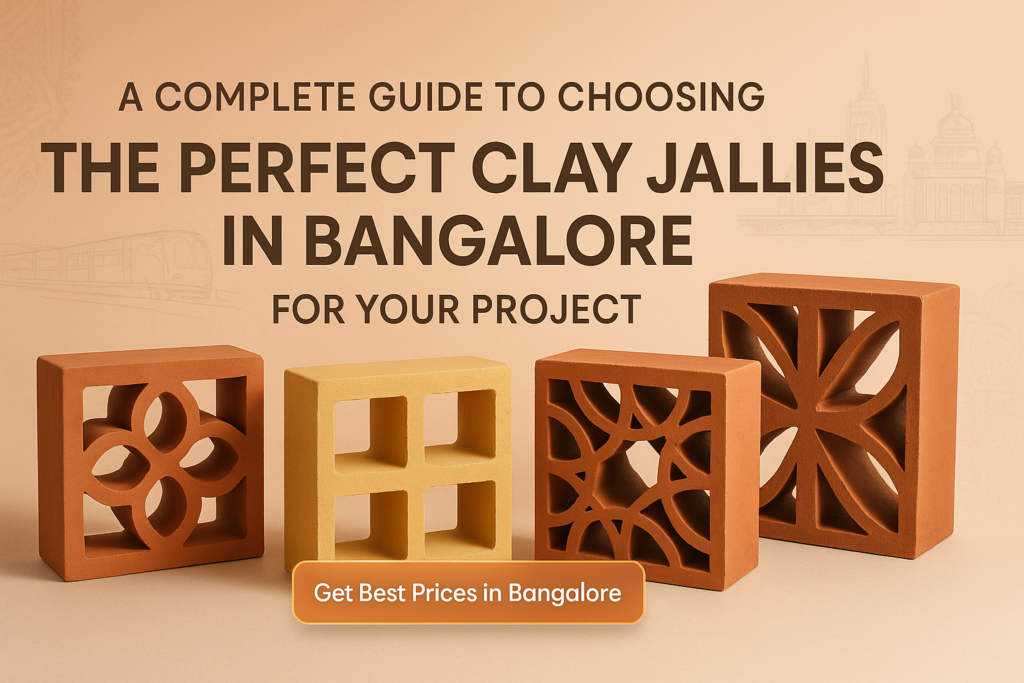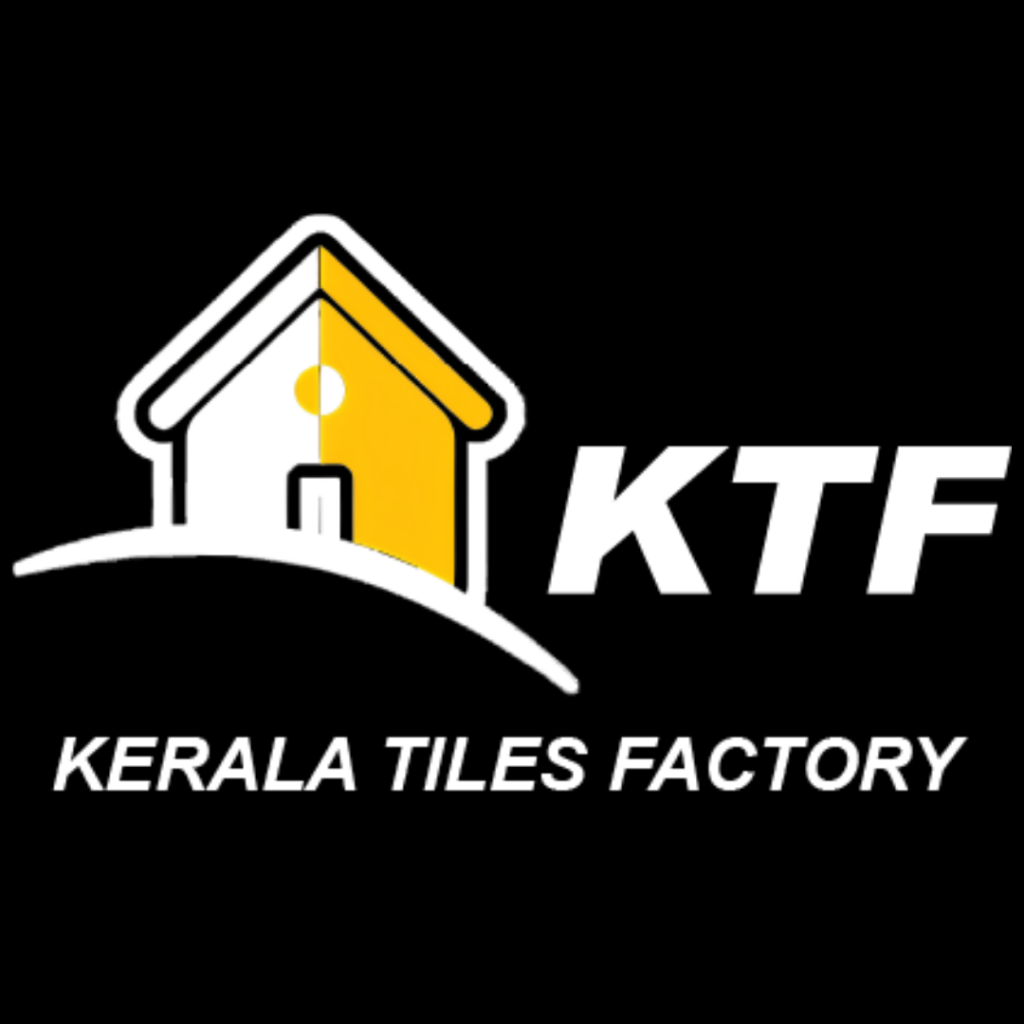Imagine a beautiful facade that not only enhances the aesthetic appeal of a building but also slashes cooling costs, naturally ventilating interiors without mechanical intervention. For many builders, architects, and homeowners in Bangalore, the struggle is real: how do you balance striking design with the relentless need for passive cooling and thermal comfort in a climate that alternates between hot and humid? The answer lies in reviving an ancient architectural marvel: the clay jalli (or jaali).
This is more than just a decorative block; it’s a high-performance building material. By the end of this comprehensive guide, you’ll know exactly how to choose, specify, and source the ideal Clay Jallies in Bangalore that perfectly balance form, function, cost, and long-term sustainability. At Kerala Tiles, with decades of experience supplying high-quality clay jallies across South India, we share these essential insights from the ground up to ensure your project’s success. We will delve into what jallies are, their immense benefits, the critical selection criteria, and where to find the best suppliers, including options from Thrissur.
Understanding Clay Jallies: Form, Function, and Heritage
Before diving into selection, you must grasp the basics of this exceptional material. Understanding what they are and their benefits sets the foundation for making informed choices.
What Are Clay Jallies?
Clay jallies, often referred to as terracotta jali, clay jaali blocks, or simply clay jali, are perforated blocks made from high-quality, naturally sourced clay. Unlike solid clay blocks, their design features geometric patterns, openwork, and voids, which serve both an aesthetic and a crucial functional purpose.
- Definition and Origin: A jali is a term from traditional Indian architecture (often called jala or jaali) that refers to a latticed screen. The modern clay jalli block adapts this tradition into modular building units.
- The Functional Difference: They are fundamentally different from solid blocks because their primary function is controlled porosity. This allows light and air to pass through while maintaining a degree of privacy and sun shading.
If you’ve ever asked, “what is clay jalli?” the simple answer is: it’s a centuries-old, breathable, and beautiful wall system that is perfectly suited for modern, green architecture.
Benefits of Clay Jallies: Ventilation, Cooling, Aesthetics:

In a city like Bangalore, where energy efficiency is paramount, the benefits of clay jallies go far beyond mere looks. They are key components of sustainable, passive building design.
1. Natural Ventilation and Passive Cooling:
The porous design creates a constant flow of air, cooling the space through the ‘Venturi effect’ and evaporative cooling. This is the main reason clay jallies are good for ventilation in a tropical climate, significantly reducing the need for air conditioning.
2. Light Control and Privacy:
Jallies diffuse harsh direct sunlight into soft, usable interior light. The pattern allows visibility from the inside out while preventing clear views from the outside in, offering controlled privacy.
3. Aesthetic Appeal:
From classic star or lattice patterns to modern geometric clay jali designs Bangalore is embracing, the aesthetic appeal is undeniable. They blend traditional Indian motifs with contemporary minimalist lines.
4. Sustainability:
As they are made from locally sourced clay and fired at lower temperatures than many alternatives, they boast a lower embodied energy, making them a highly sustainable material choice.
5. Clay jallies vs concrete jallies:
While concrete jallies exist, clay jallies offer superior thermal mass and a warmer, natural aesthetic that is impossible to replicate with cement. If you’re realizing clay jallies can solve your cooling and aesthetic challenges, read on to see how to pick the right ones for your project.
How to Choose the Right Clay Jallies for Your Project?
Choosing the right jalli is a precise process that requires balancing design vision with practical, structural, and thermal requirements. This is the heart of your specification process.
1. Key Decision Criteria: A Specification Checklist:
The decision-making process should be methodical, treating the jalli as an engineered component, not just a decorative item.
| Criterion | Why It Matters | Actionable Tip |
| Material Quality & Clay Composition | Purity and consistency prevent cracking, warping, and efflorescence. | Check for a rich, uniform terracotta color, indicating proper clay mix and firing temperature. |
| Thickness & Structural Strength | Determines its span capability and resistance to wind load and seismic activity. | For exterior walls, choose a minimum thickness of 75mm (3 inches) to ensure it acts as a durable jali for exterior use. |
| Porosity & Airflow / Hole Pattern | The size and density of the voids dictate ventilation, light, and privacy. | Specify a pattern with a maximum of 40-45% open area for an optimal balance of cooling and shading. |
| Design Pattern & Geometry | Affects the overall look—from traditional Rajasthani styles to modern, grid-based looks. | Ensure the pattern fits the architectural language (e.g., using modern geometric clay jali designs Bangalore buildings often favor). |
| Thermal Performance | Critical for maintaining cool interiors and reducing heat transfer. | Clay naturally has better thermal insulation than concrete. Verify the firing process ensures low moisture absorption. |
2. Installation & Practical Tips:
The longevity and performance of your jalli screen depend heavily on proper installation. Review this mini-guide with your structural engineer.
- Foundation and Support: Jalli screens are typically non-load-bearing. They require adequate structural support (e.g., a lintel or beam) every 3-4 feet of vertical height, or as specified by an engineer, to manage wind load and prevent collapse.
- Sealing and Drainage: While clay itself is robust, the top and base of the screen need careful detailing. Ensure proper flashing and drainage at the bottom to prevent water pooling within the screen or wicking up from the base.
- Bonding Agent: Use a high-quality, non-shrinking cement mortar or an approved polymer-modified adhesive for the best bond. Follow our detailed clay jally installation guide for precise specifications.
Want design help or structural guidance specific to your site? Contact our Kerala Tiles technical team for a free site review. Call us at +91 7411891510 to schedule a consultation.
Sourcing, Pricing & Supplier Information
Once you have your design and specifications, the next crucial step is sourcing the right material from a reliable partner.
Clay Jally Suppliers in Bangalore
While many local traders exist, focusing on established clay jally manufacturers in Bangalore or reputable large-scale suppliers is key to ensuring consistent quality and volume.
- Quality Check: Always request a sample to check color consistency, dimensional accuracy, and structural integrity. Inaccurate dimensions lead to a messy, structurally weak wall.
- Supplier Directory: Search for established clay jally suppliers in Bangalore that can provide certified blocks, ensuring they meet the required fire and structural standards. Look for suppliers who can guarantee an immediate, high-volume supply, crucial for large projects.
Price Ranges & Budget Estimates
The clay jally price in Bangalore can vary significantly based on complexity, size, and supplier scale.
- Cost Factors:
- Design Complexity: Custom or highly intricate patterns are more expensive than standard squares or lattices.
- Thickness and Size: Thicker jallies (for structural needs) cost more per piece.
- Finishing: Glazed or special-finish jallies will be at a premium.
- Transportation: Always get a final price including delivery to your site.
- Estimate: In the Karnataka region, expect basic clay jallies to start from approximately ₹32 per piece for a standard size, with prices escalating to ₹100+ for larger or complex, custom designs.
Supplier in Thrissur / Cross-Region Option
For projects across South India, or those seeking a wider range of high-quality Kerala clay materials, exploring suppliers in the Thrissur region is a smart move.
- The Kerala Tiles Advantage: We serve clients sourcing clay jallies in Thrissur, Bangalore, and across South India. By leveraging our manufacturing scale, we offer competitive pricing and custom kiln runs.
- Search for: Reputable clay jalli dealers in Thrissur like Kerala Tiles who can manage logistics and deliver high-quality, weather-tested materials directly to your Bangalore or Karnataka site.
How Kerala Tiles Helps You?
Choosing Kerala Tiles means opting for reliability and proven quality.
- Unmatched Quality: We source and fire our clay for superior strength and thermal performance.
- Custom Capability: We excel at translating architectural drawings into custom clay jalli blocks, supporting your unique vision.
- Logistics & Support: We handle seamless delivery to Bangalore and offer technical installation guidance.
Call Kerala Tiles today at +91 7411891510 for a free cost estimate, or visit our Google My Business listing to see reviews and our latest project images.
FAQs:
1. How do I choose the best clay jallies for ventilation in Bangalore?
Focus on the jalli’s open area percentage and its orientation. For maximum ventilation, choose a pattern with an open area between 35-45% and ensure the jalli wall is positioned perpendicular to prevailing wind directions to scoop air into the building.
2. What is the lifespan of clay jallies compared to concrete ones?
Properly fired clay jallies can last for centuries with minimal maintenance. Unlike concrete, which can suffer from chloride attack and cracking over time, high-quality clay has exceptional durability and only requires occasional cleaning.
3. Can clay jallies be used in monsoon / humid weather conditions?
Yes. Clay is naturally fireproof and weather-resistant. The key is in the installation details: ensure proper sealing and drainage at the base and top of the jalli screen to prevent water ingress into the main structure.
4. How much do clay jallies cost per sq ft in Bangalore?
The cost per square foot for installed clay jallies typically ranges from ₹250 to ₹600, depending heavily on the size of the block, the design’s complexity, and labor costs. Always get a detailed, line-item quote from your clay jally suppliers in Bangalore.
Don’t Settle: Choose Decades of Beauty and Performance
Choosing the right Clay Jallies in Bangalore is the final, crucial step in creating an aesthetically stunning and thermally comfortable project. You’ve learned about their profound thermal and ventilation benefits, the critical specification criteria, and the importance of quality sourcing. The decision you make today will impact your building’s energy consumption, maintenance costs, and visual character for decades to come.
Don’t settle for a subpar jali that cracks, leaks, or fails to deliver on its promise of passive cooling. Choose wisely once and enjoy decades of functional beauty.
Are you ready to transform your facade? Call Kerala Tiles now at +91 7411891510 for a free, detailed cost estimate tailored to your project.
Visit our Richmond Road showroom, get directions here, to see the quality and variety of our clay jallies firsthand!

About Kerala Tiles Factory Author – Kerala Tiles Factory is one of the most trusted Tiles Manufacturers in Bangalore, known for producing high-quality clay tiles that combine durability, aesthetic appeal, and traditional craftsmanship. With decades of expertise, we offer a wide range of roofing tiles, flooring tiles, wall tiles, exterior tiles, and custom tile solutions designed for both residential and commercial projects. Our tiles are crafted using eco-friendly processes, ensuring long-lasting performance, weather resistance, and superior strength, making us a preferred choice among architects, builders, and homeowners in Bangalore.
Our commitment to innovation and customer satisfaction has helped us become a leading tile supplier and clay tile manufacturer in the region. We focus on delivering premium-quality products at competitive prices, backed by reliable service and timely delivery. At Kerala Tiles Factory, we strive to exceed expectations by providing sustainable, modern, and high-performance tile solutions that elevate the beauty and value of every space.



